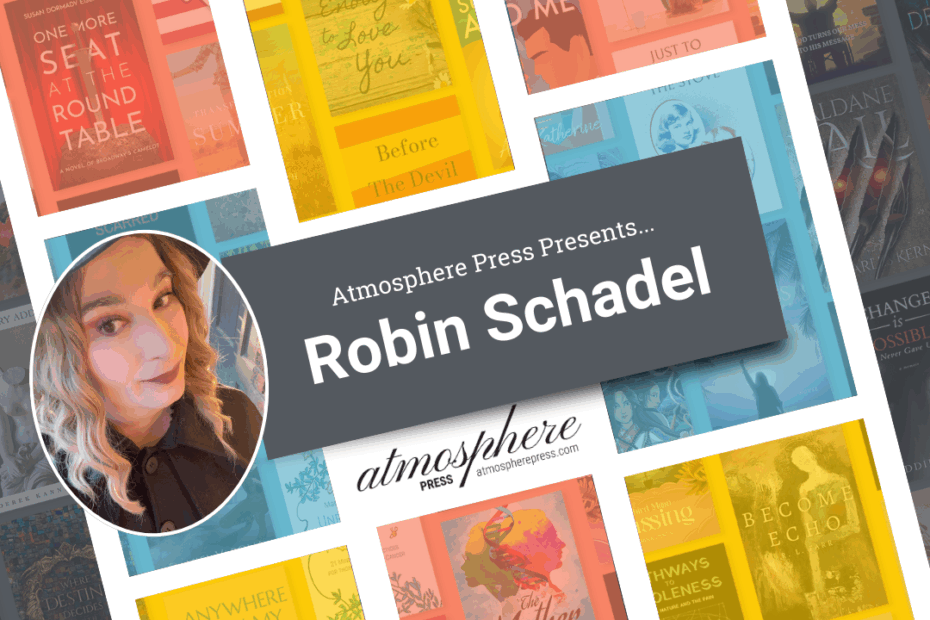An Interview with Robin Schadel

By day, Robin is an academic research consultant and freelance fiction editor. She has degrees in medieval literature, historical linguistics, and political rhetoric. When not working or writing, she enjoys reading cozy mysteries, dark fantasy, and cute romances; playing video games, Magic: the Gathering, and tabletop role-playing games; and annoying/cuddling her two cats.
What inspired you to start writing this book?
Originally, a friend who read the urban fantasy novels I’ve written challenged me to write a Louisiana horror novel with a plot that couldn’t work anywhere else. So, after conversing with former colleagues who are Louisiana folklorists as well as members of local indigenous populations, I found an angle to take the Rougarou in a direction that felt authentic to both the lore and to my perspective as a writer.
Tell us the story of your book’s current title. Was it easy to find, or did it take forever?
The title, Wolf in the Sanctuary, is a translation of the Old Norse Varg i Veum (a wolf in the sanctuary), which connects to the Germanic process of declaring someone an outlaw (being outside the protection of the law). Given that “Rougarou” comes from the French Loup-Garou, where Loup is the French for wolf and Garou comes from Frankish Gar-(w)ulf, or “Werewolf,” the connection of a creature in a liminal space between human and animal, civilization and wilderness, and salvation and sin…the title seemed appropriate. I went through a few titles, with most variants focusing on something connected to the Catholic Mass and wolves. But this one fits the best.
Describe your dream book cover.
My dream book covers are almost abstractions that serve as puzzles of how they connect to the story. They provide some clues as to the themes, but they aren’t direct representations. Right now, I’m looking at a weathered cabin on the edge of a swamp with a ghostly wolf-face as the likely cover image.
If your book had a soundtrack, what are some songs that would be on it?
“House of the Rising Sun” by the Animals, “Seven Devils” by Florence + the Machine, “God’s Gonna Cut You Down” by Jonny Cash, “Dead Man’s Bones” by Dead Man’s Bones. I’m not a soundtrack-writer, but I usually have a handful of songs in mind that sort of fit the mood of the work.
What books are you reading (for research or comfort) as you continue the writing process?
Right now? Lauren Leake’s The Dark One’s Descendent. I admit that I read a lot of paranormal romance to relax, so this is what I’m reading now.
What other professions have you worked in? What’s something about you that your readers wouldn’t know?
I was a college professor for most of my adult professional life. My work history surprises no readers, but the fact that I was once a ranked fencer in both epee and saber usually surprises people, since I’m as prissy a princess as you’ll ever find.
Who/what made you want to write? Was there a particular person, or particular writers/works/art forms that influenced you?
I can’t really name an individual. I always loved stories and telling them. As a kid, I created stories to be told with my LEGO sets. I read voraciously across all genres (many that I was too young to read at the time), and most of my hobbies now, like playing TTRPGs, have an element of storytelling. I will say that an anthropology professor of mine, Dr. Miles Richardson, told a story where researchers asked a computer what makes someone human, and the computer responded with “Let me tell you a story.” I’m human. Telling stories is human, and so I tell stories But Dr. Richardson’s anecdote stuck with me about how important stories are.
Where is your favorite place to write?
I usually write on my sofa, sprawled out under a velvet blanket, with at least one of my cats on my lap (or trying to sit on my laptop). Before my divorce, I would write in pool halls while supporting my partner during APA league play.
Do you have any writing rituals?
I really don’t. Some days, I write with music, some days with television on in the background. Other days, I write in silence.
What is one thing you hope readers take away from reading your book? How do you envision your perfect reader?
Whether the genre says it or not, most of what I write has a Southern gothic sensibility. As such, the one takeaway is that the sins one believes are hidden in the darkness of the past will cause the present to rot until they are brought to light—and even then, there will still be a reckoning. My ideal reader is one versed in folklore, religion, popular culture, history, and art. It’s a lot, because I put easter-egg references for those with such knowledge bases in my books.
Are you a writer, too? Submit your manuscript to Atmosphere Press.

Atmosphere Press is a selective hybrid publisher founded in 2015 on the principles of Honesty, Transparency, Professionalism, Kindness, and Making Your Book Awesome. Our books have won dozens of awards and sold tens of thousands of copies. If you’re interested in learning more, or seeking publication for your own work, please explore the links below.
